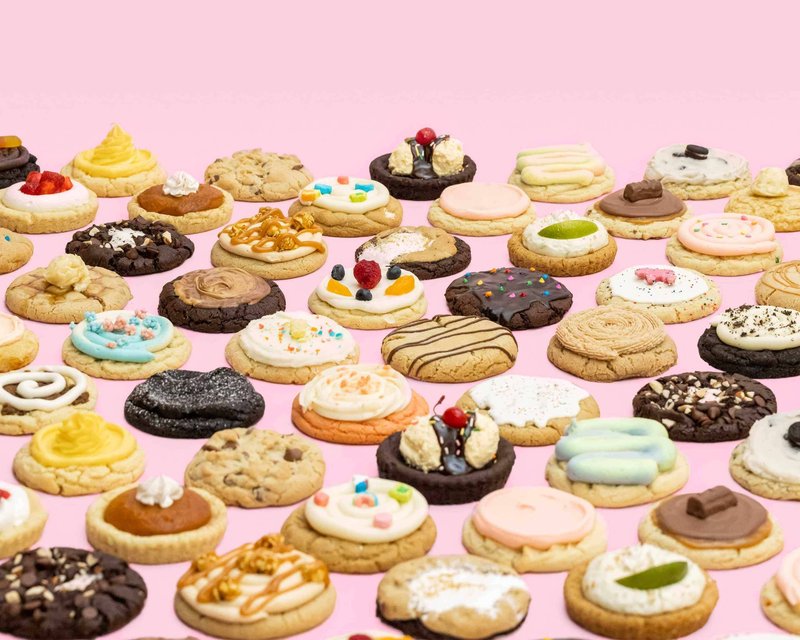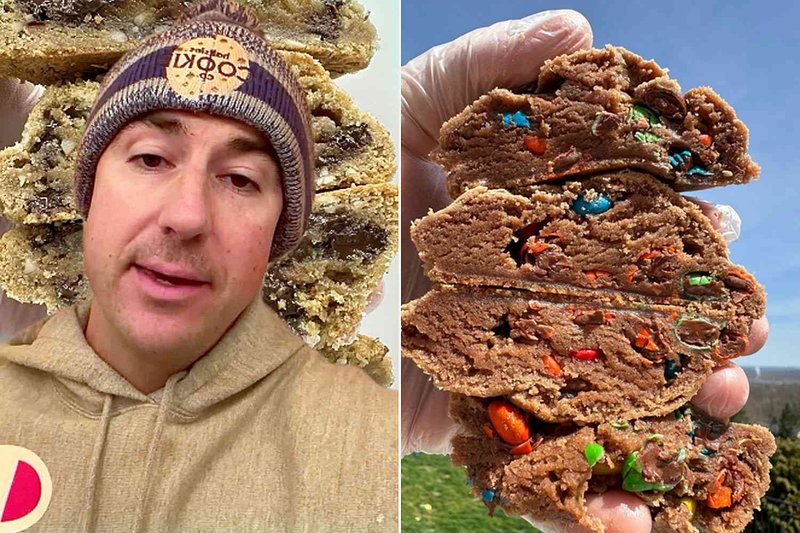In the bustling world of social media influencers, where brands eagerly seek partnerships to boost their reach, one small business owner is taking a stand against what he sees as opportunistic behavior. David Maffei, the owner of Halfsies Cookie Company in New York, has found himself at the center of a viral moment after sharing an exchange with a bride-to-be who claimed to be an “influencer” and requested free cookies for her bridesmaid bags.

Maffei’s decision to call out this request has ignited a heated debate, shedding light on the challenges small businesses face when navigating the influencer marketing landscape. His story serves as a cautionary tale for entrepreneurs seeking to protect their limited resources while also highlighting the importance of being selective and intentional when it comes to collaborations.
Maffei’s Uncompromising Stance

In an Instagram Reel that quickly went viral, Maffei shared the messages between himself and the bride-to-be, Ana Montealgre, who described herself as an “influencer” who had “collaborated with a few brands.” However, upon reviewing her profile and seeing a small, personal-sized following, Maffei bluntly responded, “Sorry, you’re not an influencer.”
When Montealgre insisted that she was a “beginner influencer,” Maffei’s snarky reply, “I’m a beginner astronaut,” left no room for misinterpretation. His stance was clear: he would not be swayed by claims of influencer status without tangible evidence of a substantial following and proven track record.
Protecting a Small Family Business

Maffei’s unwavering position stems from the realities of running a small family business with limited resources. As he explains to PEOPLE, “We are just an extremely small family business with one employee who is also a very close family friend. When we started getting dozens of these (mostly bachelorette) party requests from people that have never ordered with us and don’t even follow us, I was annoyed.”
For Maffei, the decision to share these interactions with his followers was twofold: to shed light on the challenges small businesses face and to raise awareness about the potential harm such requests can cause. “In this economy, we are all trying to stay alive,” he emphasizes. “We have to be very intentional with who we send promotional mailings to — whether it be a charitable cause or legitimate influencer.”
Navigating the Influencer Marketing Landscape

As the debate raged on, with commenters weighing in on both sides, Maffei took the opportunity to clarify his position in a follow-up Instagram post. “To be clear, I’m not anti-influencer,” he wrote. “Influencer marketing is how we have grown. I don’t like opportunistic people trying to capitalize on the flooded influencer market. If you’re embarrassed when I show our following what you said to us, maybe you shouldn’t say these things.”
Maffei’s stance resonates with many small business owners who have grappled with the complexities of influencer marketing. While the potential for increased visibility and sales is undeniable, the risk of being taken advantage of by those seeking freebies or inflating their influence is ever-present.
A Call for Authenticity and Transparency

Maffei’s viral moment serves as a reminder of the importance of authenticity and transparency in the influencer marketing world. As brands and influencers alike navigate this rapidly evolving landscape, it is crucial to prioritize genuine connections and mutually beneficial partnerships.
For small businesses like Halfsies Cookie Company, the ability to discern legitimate influencers from those simply seeking free products can mean the difference between success and failure. By taking a firm stance and raising awareness, Maffei has sparked a conversation that extends far beyond the confines of his New York bakery, encouraging entrepreneurs to be vigilant and protect their hard-earned resources.









